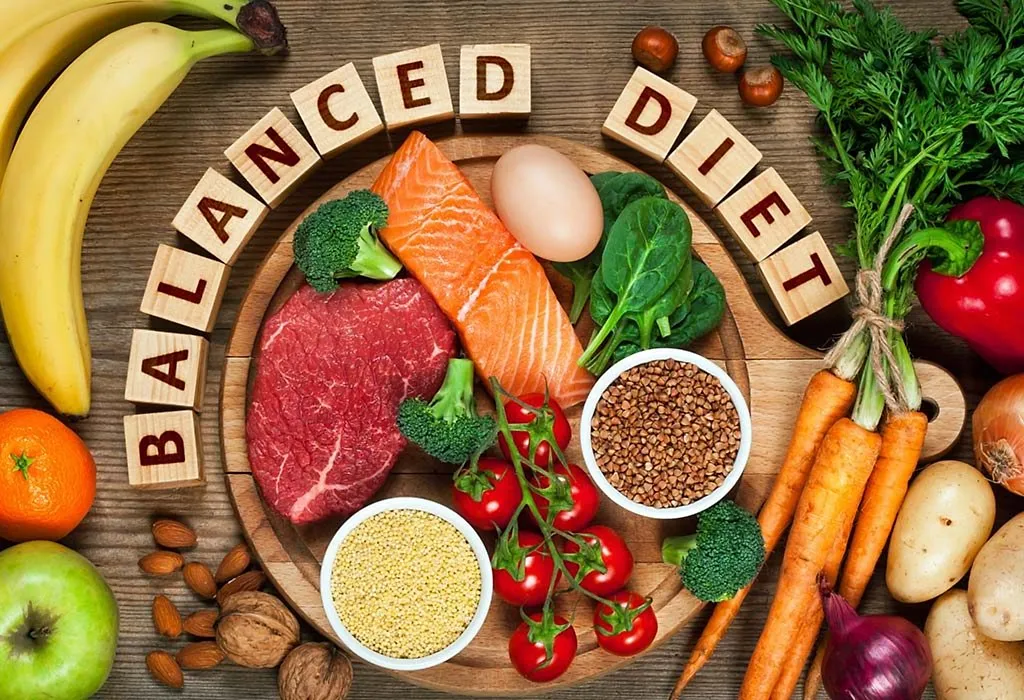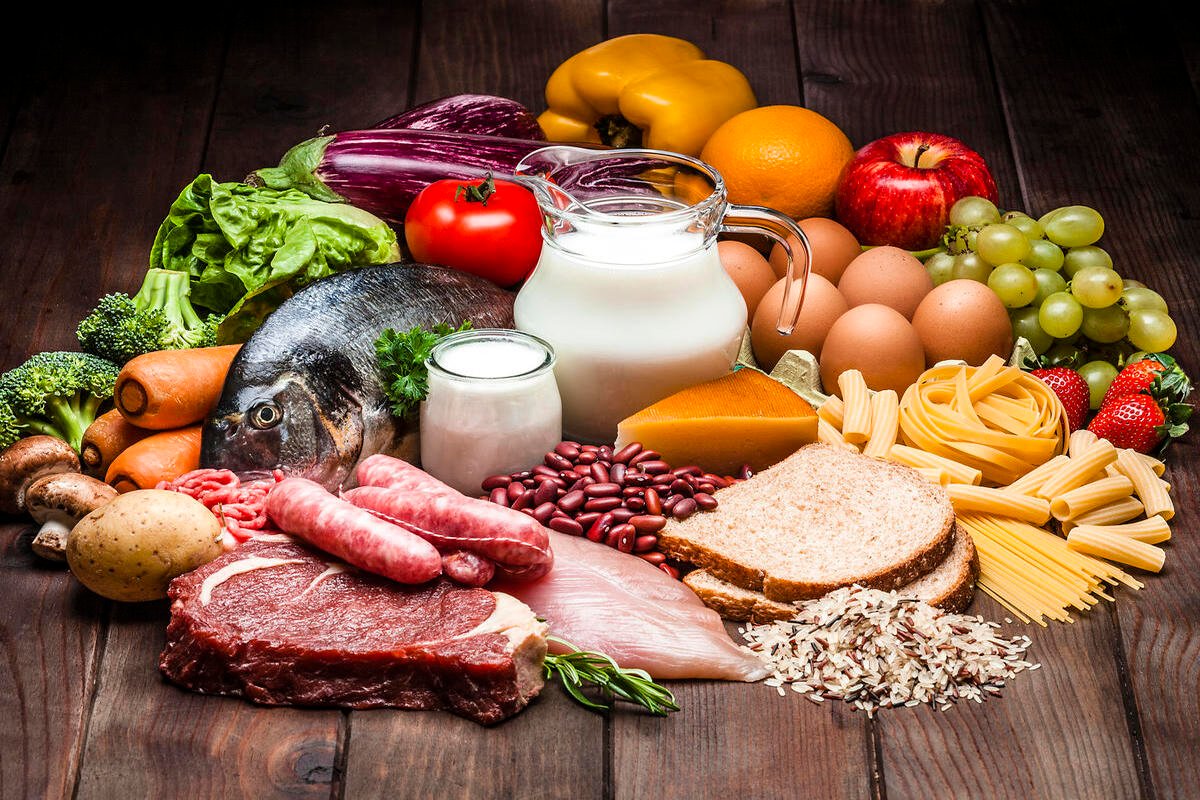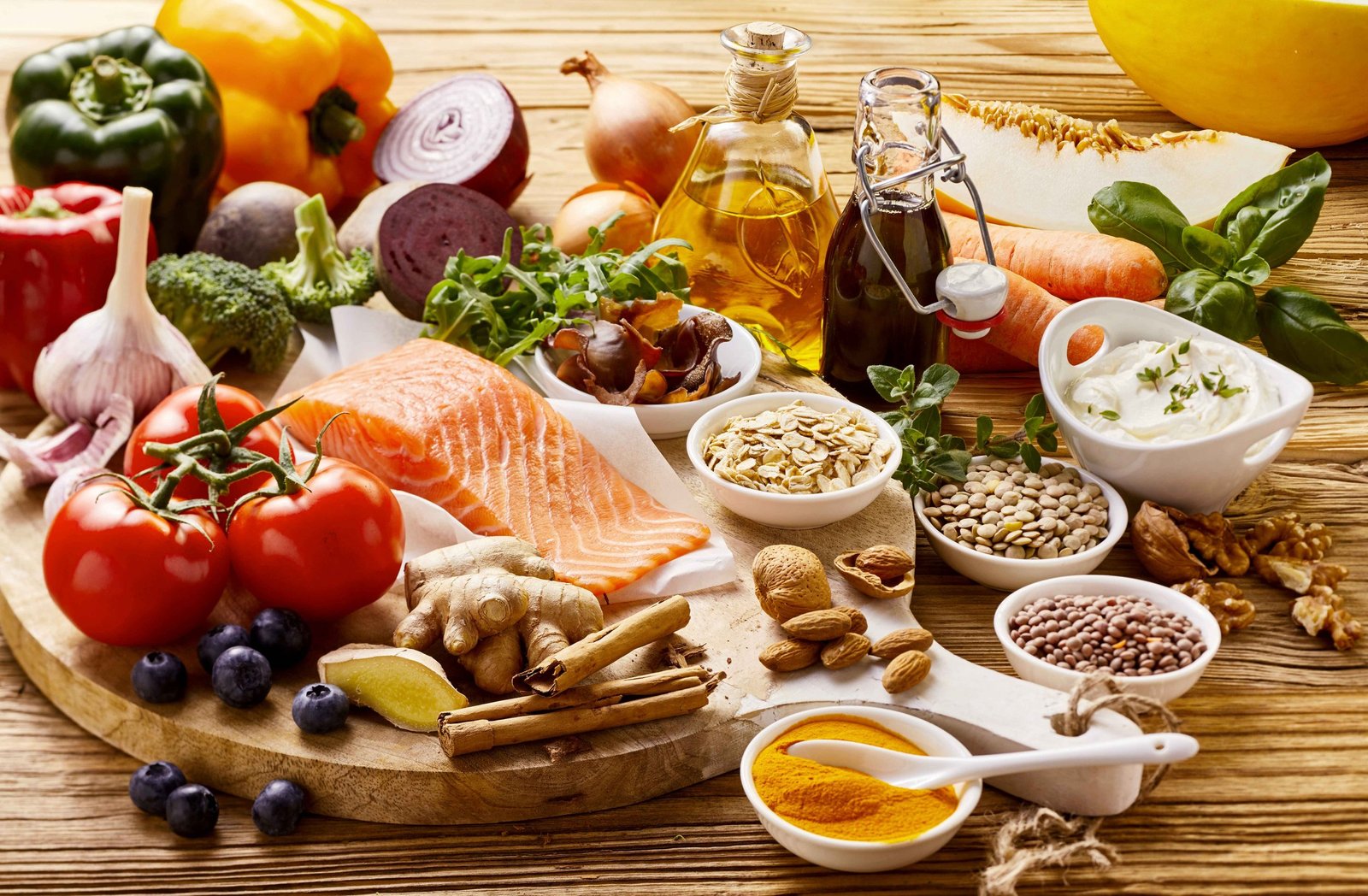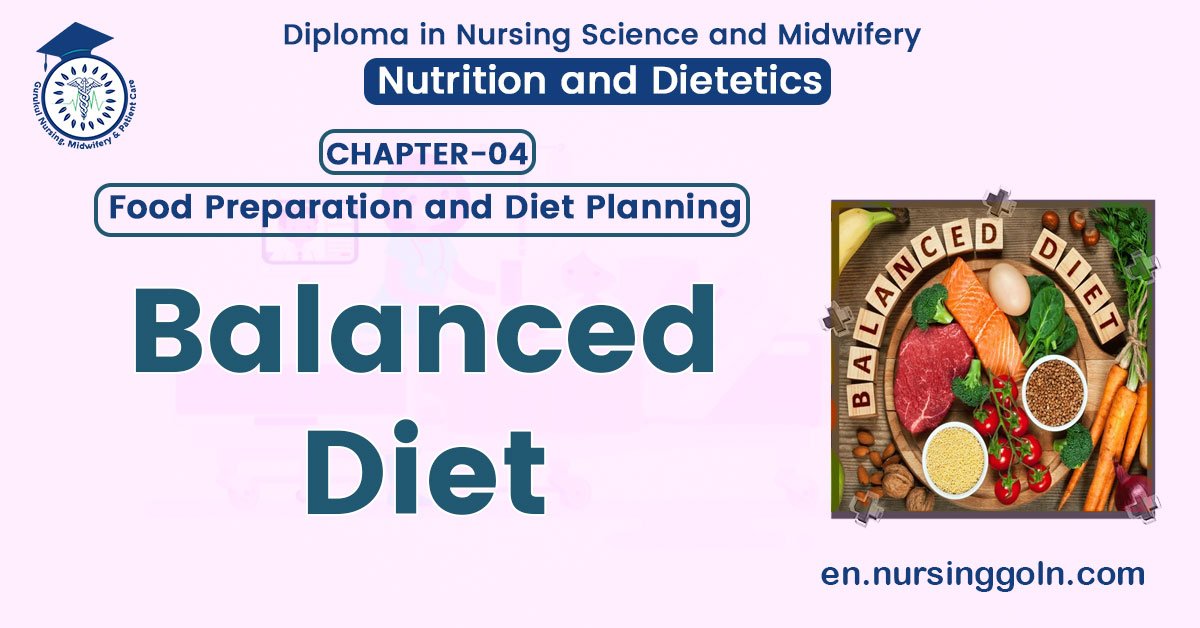Balanced diet – This book covers the entire syllabus of “Nutrition and Dietetics” prescribed by BNMC-for all Diploma in Nursing Science and Midwifery students. We tried to accommodate latest information and topics. This book is examination friendly setup according to the teachers’ lectures and examination’s questions. At the end of the book previous university questions are given. We hope in touch with the book students’ knowledge will be upgraded and flourished. The unique way of presentation may make your reading of the book a pleasurable experience.
Balanced diet
A balanced diet is one that provides the body with all the essential nutrients, vitamins and minerals required to maintain cells, tissues and organs as well as to function correctly.
A diet that is lacking in nutrients can lead to many different health problems ranging from tiredness and lack of energy to serious problems with the function of vital organs and lack of growth and development. It should also be made up of the correct number of calories to maintain a healthy weight, and be low in processed foods.

Every person is different and hence the correct diet for health may vary from person to person, however by following a diet that is varied, covers all foods groups and is low in undesirable nutrients such as sodium, saturated fats and sugar, you are well on your way to a healthy body.
Definition of Balanced Diet:
The diet which contains all the proximate principles of food in adequate qualities & quantities to maintain all the requirement of the body and also to provide some extra nutrients so that one can withstand short duration of leanness.
Or,
A balanced diet needs to contain foods from all the main food groups in the correct proportions to provide the body with optimum nutrition.
Or
A balanced diet can be defined as the nutrients required for sustaining and keeping the human body in metabolic health.
(Ref by: RKH/5/135)
OTHER DEFINITIONS-NICE TO KNOW]
A balanced diet is defined as one which contains a variety of foods in such quantities and proportions that the need for energy, amino acids, vitamins, minerals, fats, carbohydrate and other nutrients is adequately met for maintaining health, vitality and general wellbeing and also makes a small provision for extra nutrients to withstand short duration of leanness.
(Ref: K. Park/24/675)
A good or adequate diet is known as balanced diet. It is also defined as a diet, which contains different types of food in such quantities and proportions so that the need for calories, proteins, minerals, vitamins and other nutrients is adequately met and a small provision is made for extra nutrients to withstand short duration of leanness.
(Ref by: Onila Salin’s Essential nutrition/1/57)
A balanced diet is defined as one which contains a variety of foods in such quantity and proportion that the needs for energy, proteins, vitamins, minerals, fats, carbohydrates and other nutrients are adequately met for maintaining health, vitality and general wellbeing.
(Ref by: Molly Sam’s A text book of Nutrition for Nurses/2470)
Balanced diet is diet that contains adequate amounts of all the necessary nutrients required for healthy growth and activity.
Principles of Balanced Diet:
In constructing balanced diet, the following principles should be borne in mind –
1. First and foremost, the daily requirement of protein should be met. This amounts to 10-15 per cent of the daily energy intake.
2. Next comes the fat requirement, which should be limited to 15-30 per cent of the daily energy intake.
3. Carbohydrates rich in natural fibre should constitute the remaining food energy. The requirements of micronutrients should be met.
(Ref: K. Park/24/675)

Importance of Balance Diet:
The following are the importance of a balanced diet:
- Balanced Diet leads to a good physical and mental health.
- It helps in proper growth of the body.
- Also, it increases the capacity to work
- Balanced diet increases the ability to fight or resist diseases.
- Protects body from nutritional deficiencies.
Another Answer
A balanced diet is important because our organs and tissues need proper nutrition to work effectively. Without good nutrition, our body is more prone to disease, infection, fatigue, and poor performance. Children with a poor diet run the risk of growth and developmental problems and poor academic performance, and bad eating habits can persist for the rest of their lives. Rising levels of obesity and diabetes are prime examples of the effects of a poor diet and a lack of exercise.
Percentage of Food Item in Balance Diet:
- Carbohydrate -50-65%
- Fat -20-30%
- Protein -15-20%
Components of a Balanced Diet
Some components of a balanced diet are as follows:
| Fats | Some part of our energy requirement is fulfilled by fats. Fats can be found in fatty foods such as butter, ghee, oil, cheese, etc. |
| Proteins | We need proteins for growth purposes and to repair the wear and tear of the body. Protein also helps in building muscle. It is found in dairy products, sprouts, meat, eggs, chicken, ete |
| Carbohydrates | We need the energy to process and it is fulfilled by carbohydrates Cate provide us energy. Carbohydrates can be found in rice, wheat, bread, etc. |
| Minerals and Vitamins | Vitamins, Minerals, and Fibre improve the body’s resistance to disease. We mainly obtain it from vegetables and fruits. Deficiency diseases like Ae Goitre, etc. can be caused due to lack of mineral in the body. |
Criteria of Balance Diet:
1. Easily available.
2. Sufficient to satisfy taste and appetite.
3. Diet should be palatable.
4. It should be easily digestible, absorbable and assailable.
5. Protein and fat should be obtained both from animal & vegetable sources, at least one third of the protein & fat in diet should be of animal in origin.
6. It should contain sufficient vegetables and fruits.
7. Vitamins and minerals should be present in sufficient quantity.
8. Certain amount of cellulose or roughage should be present to promote peristalsis.
(Ref: K. Park/24676
Goals of Balanced Diet:
1. Dietary fat should be limited to approximately 20-30 per cent of total daily intake,
2. Saturated fats should contribute no more than 10 per cent of the total energy intake; unsaturated vegetable oils should be substituted for the remaining fat requirement;
3. Excessive consumption of refined carbohydrate should be avoided; some amount of carbohydrate rich in natural fibre should be taken;
4. Sources rich in energy such as fats and alcohol should be restricted;
5. Salt intake should be reduced to an average of not more than 5 gm Per day
6. Protein should account for approximately 15-20% of the daily intake;
7. Junk foods such as colas, ketchups and other foods that supply empty calories should be reduced
Factor Affect Balanced Diet:
1. Male requires more calories than the females
2. Hard work requires more calories than the sedentary work.
3. During pregnancy, lactation and disease condition body requires more calories, proteins and vitamins.
4. Growing child requires more calories and proteins than the adults.
(Ref by: Onila Salin’s Essential nutrition/1/58)
Another Answer
A. Biological factor
- Hunger,
- Appetite, and taste
B. Economic factor
- Cost,
- Income,
- Availability
C. Physical factor
- Access,
- Education,
- Skills (e.g. Cooking) and time
D. Social factor
- Culture,
- Family,
- Peers and meal patterns
E. Psychological factor
- Mood,
- Stress and guilt
F. Attitudes, beliefs and knowledge about food

Essential Nutrients for a Healthy Balanced Diet
| Nutrient | % of daily calories | Function | Source |
| Carbohydrates | 45-55% | Energy | Grains (refined & unrefined): wheat, maize, corn, millet, oats, rice, flour, pasta, noodles; potatoes, sweet potatoes, yam. Fruit (sugar). |
| Protein | 10-35% | Tissue growth and maintenance | Meat, fish, nuts, eggs, soya, beans and pulses. |
| Fat | 20-35% from fat | Energy, energy storage, hormone production | Nuts, seeds, plant oils, dairy products (milk, cheese). |
| Fibre | Included in carbs. | Regulates blood sugar levels, bowel function and bowel health. | Peas, beans, vegetables, fruit, oats, whole grains, brown rice, nuts, seeds. |
| Vitamins & minerals | Trace | Metabolism regulation, aiding cell growth, other biochemical functions | Specific to each vitamin/mineral. A range of vegetables, lean meat, nuts and seeds will cover most people’s needs. |
| Water | 0 | Maintaining hydration | Drinking water, other beverages. About 20% of water intake comes from food. |
A Balanced Diet Menu for The Poor:
| Food items | Quantity | Calorie |
| Rice | 240 g | 960 kcal |
| Pulses | 25 g | 85 kcal |
| Atta | 120 g | 480 kcal |
| Oil | 30 g | 270 kcal |
| Fish/Meat/Egg | 60 g | 240 kcal |
| Non-leafy vegetables | 100 g | 60 kcal |
| Leafy vegetables | 60 g | 24 kcal |
| Fruits | 60 g | 12 kcal |
| Total | 2131 kcal | |
